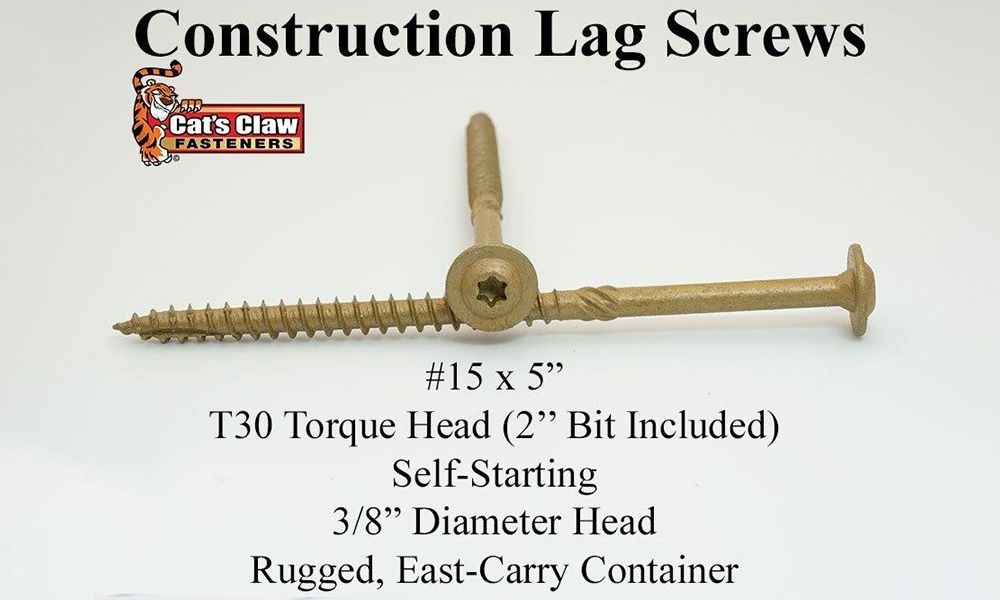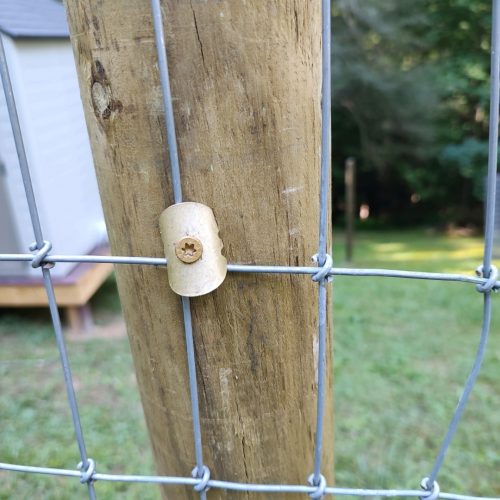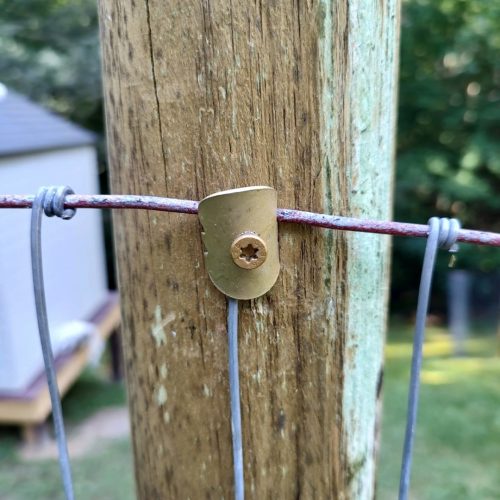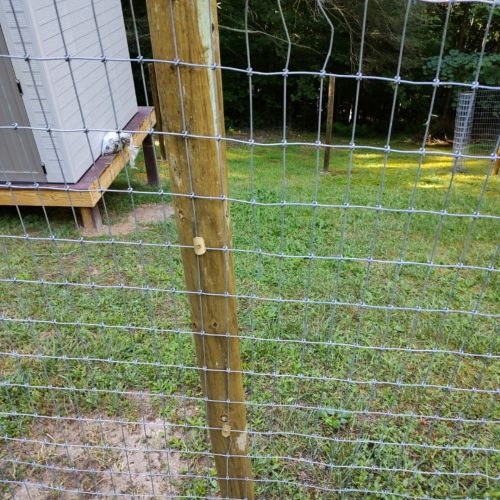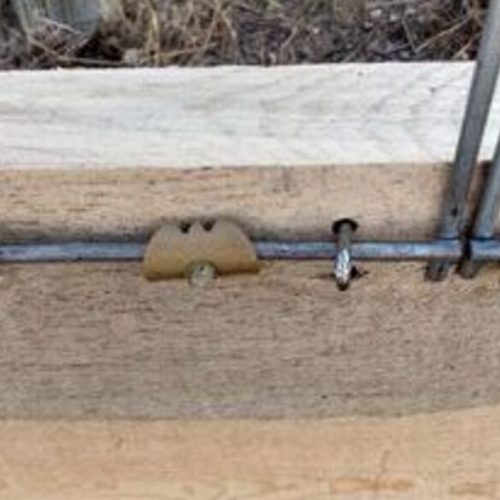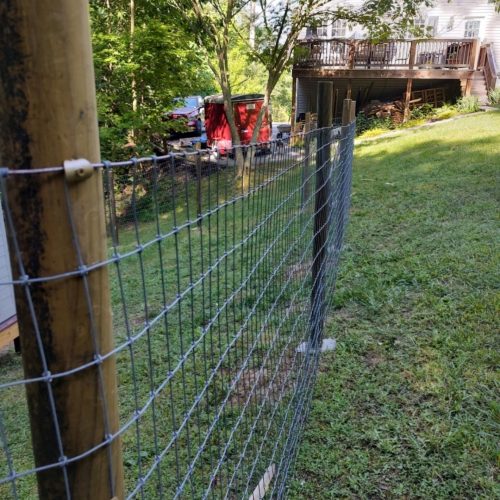Most fasteners are a means to one common goal: fastening. Nails are a go-to for binding two pieces of material together but can lose strength over time and loosen, even coming out of the material. Meanwhile, screws operate on grip strength, almost like glue, and are highly unlikely to ever lose their grip. Use this list of the different types of screws and their uses as you stock up on the right fasteners for your future projects.
Wood Screws
Construction projects typically implement wood screws for wood fastening and woodworking. Joining multiple types of wood together requires that these screws are a little grippier than standard screws. This extra strength ensures that they can get in between the wood fibers and really grip the wood, meaning that they won’t come loose in the future. Take caution and make sure to drill pilot holes regardless, especially when dealing with harder wood types that can potentially crack.
Deck Screws
When you’re dealing with decking screws, the idea is that they all remain uniform. These screws usually aren’t too large and instead have a standardized size so that you don’t accidentally screw through your deck. The special finish coating on these screws allows for extra durability to hold up against the outdoor elements. For a firmer hold, some deck screws require particular drill bits, such as star bit screw types.
Drywall Screws
With drywall screws, you usually get thinner centers and slightly wider spiraled edges to help grip the drywall. These don’t make the greatest screws for hanging shelves or décor, as without a stud or anchor, the screw pushes through the drywall into the empty space behind it. Added weight can cause drywall screws to shift. However, they are good for applying new drywall panels in a room if you’re remodeling a home or office. Because these screws are so specific, you should only use them as recommended.
Masonry Screws
As screws designed to cut through stone and cement, masonry screws are generally on an entirely different hardness scale than others. That said, don’t let this fool you into thinking that you should screw directly into cement. Again, always use pilot holes, even when working with the proper screw types. These screws are perfect for heavy-duty jobs like masonry and stone building and often come in corrosion-proof coatings.
Sheet Metal Screws
Much like masonry screws, sheet metal screws are a tougher variety with specialized coatings to protect the screw. The higher-grade metal allows these screws to withstand going through sheets of metal and plastics. As with many other screws, you need to make sure you’re drilling pilot holes with these. It’s especially important that with harder materials, you drill pilot holes to prevent injury or project complications. Unfortunately, with sheet metal work, incorrectly using screws can potentially mess up the entire project, so it’s crucial to use the correct fasteners and tools.
Lag Bolts
While technically in a league all their own, lag bolts are a heavy-duty screw ideal for the heaviest jobs out there. You will typically see lag bolts used on construction sits where heavy beam construction is present. The lags fasten these massive beams together with ease. Their giant size matches that of their wooden components, and they can bring together monumental projects, like buildings and other substantial architectural structures.
Hex Bolts
Hex bolts are much like lag bolts, but their application is slightly more specific. These bolts can help with anchoring lag screws. Most of the time, hex bolts fit into predrilled holes that have the swivel drilled into them for easy entry. Hex screws are a common option for anyone tackling larger construction projects, remodeling projects, or some deck and stair applications.
Thread-Forming Screws
Apart from the rest of the screws previously mentioned (apart from the sheet metal screws that also fall into this category), thread-forming screws puncture whatever material they are going into and create their own thread. This function saves you the time and effort of creating a pilot hole, as thread-forming screws perform without the use of pilot holes.
Even when using thread-forming screws, it’s important to keep in mind the durability of your material and the needs of a structure, especially if you’re fastening a larger structure. These screws would work exceptionally well in wooden posts when used in tandem with hog panel fasteners. The added security will keep the wire secured to the post and help prevent the escape of livestock.
Security Screws
Another designer screw that is unlike any other screw on the market is the security screw. These screws require special drill bits that don’t appear in the common toolbox. This unique bit requirement makes invasion and theft extremely difficult. Security screws typically come with the specialized drill bit, giving the owner nearly exclusive access.
Socket Screws
Much like the highly specialized security screws, socket screws fit sockets of specific sizes. Socket screws are ideal for situations requiring increased torque or where final product weight is a factor. However, unless you are approaching a highly specialized project, using socket screws is just a matter of preference. So, if wrenches and sockets are something that you tend to use more than other tools, then these might be the screws for you.
With all the screws listed above, you can see that there are screws for just about any situation that you could ever imagine. It’s hard to believe that you can screw through concrete or that some screws serve as a unique security measure, but these unique screws exist!
Next time someone asks you, “What are the different types of screws and their uses?” you can easily educate them on the matter. Use this rundown as a resource while you stock back up on fasteners before tackling the next series of projects.
Whatever the occasion, it’s essential to have the right tools for the job. Using the correct fasteners can make even the most complex builds that much easier. So, make sure you have the right screws for the job in whatever you decide to do, and best of luck on your future projects! Visit Cat’s Claw Fasteners to check out our products including construction lag screws.
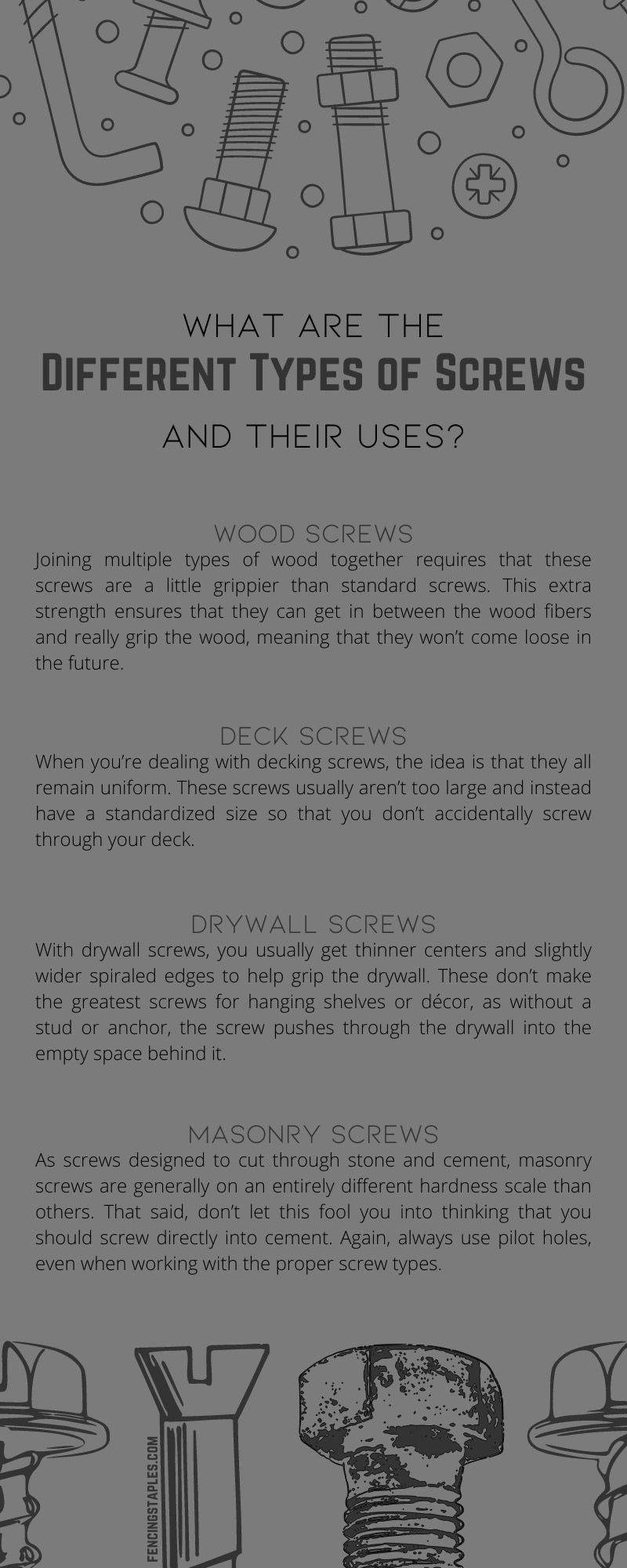
Want to expand your knowledge? Cat’s Claw Fasteners is here to assist! Reach out to our Head Cat Collector, Chava, at chava@catsclawfasteners.com. Stay updated with our blog posts and follow us on Facebook, Instagram, Pinterest, and Youtube for more exciting updates!
Read Next: How to Install a Fence on a Slope

.png)



